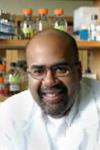27 May Newly Discovered Phages Can Target Antibiotic Resistance
MedicalResearch.com Interview with:

Dr. Paul Turner
Paul E. Turner Ph.D
Chair of Ecology and Evolutionary Biology,
Yale University
Microbiology Faculty,
Yale School of Medicine
New Haven, CT 06520
MedicalResearch.com: What is the background for this study? What are the main findings?
Dr. Turner: Our study concerned the problem of multi-drug resistance in the opportunistic pathogen Pseudomonas aeruginosa, especially the search for promising bacteriophage candidates with biological properties to effectively target these bacteria. We tested whether the binding of phage to outer membrane proteins of multidrug efflux pumps would exert selection for bacteria to avoid virus attack by compromising pump performance – thus suffering increased sensitivity to traditional antibiotics. We discovered a naturally occurring phage that forced the desired evolutionary trade-off; we showed that clinical isolates of P. aeruginosa gained phage resistance, while simultaneously becoming susceptible to several antibiotics that are ordinarily useless in controlling these MDR pathogens.
MedicalResearch.com: What should readers take away from your report?
Dr. Turner: Newly discovered phages can be highly effective at targeting antibiotic resistance mechanisms in MDR bacteria, causing these pathogens to become antibiotic sensitive. Medical use of such resistance targeting phages could greatly improve clinical outcomes by reversing antibiotic resistance in MDR bacterial pathogens.
MedicalResearch.com: What recommendations do you have for future research as a result of this study?
Dr. Turner: We recommend utilizing a ‘rational drug design’ approach to combating antibiotic resistance, especially use of phages to target efflux pump systems in MDR bacteria. This approach could greatly reduce the burden to rely on drugs of last resort and would extend the lifetime of our current antibiotic library.
MedicalResearch.com: Thank you for your contribution to the MedicalResearch.com community.
Citation:
Benjamin K. Chan, Mark Sistrom, John E. Wertz, Kaitlyn E. Kortright, Deepak Narayan, Paul E. Turner. Phage selection restores antibiotic sensitivity in MDR Pseudomonas aeruginosa. Scientific Reports, 2016; 6: 26717 DOI:10.1038/srep26717
Note: Content is Not intended as medical advice. Please consult your health care provider regarding your specific medical condition and questions.
More Medical Research Interviews on MedicalResearch.com
[wysija_form id=”5″]
Last Updated on May 27, 2016 by Marie Benz MD FAAD
